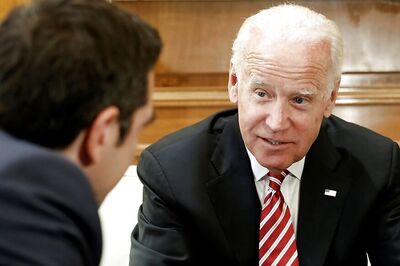
views
The headline inflation, based on the retail Consumer Price Index (CPI), rose to 7 per cent in August 2022 due to an adverse base effect and an increase in food & fuel prices. The government has prohibited exports of food products like wheat flour/atta, rice, maida, etc to keep domestic supplies steady and curb the rise in prices and its effect will be felt in the coming weeks, the finance ministry said on Tuesday.
“The headline inflation based on retail CPI recorded a moderate increase from 6.71 per cent in July 22 to 7.0 per cent in August 22. This increase is attributable both to an adverse base effect and an increase in food & fuel prices – the transient components of CPI inflation,” the ministry said in a series of tweets.
It added that the core inflation, calculated by excluding the transient component of CPI viz. ‘food and beverages’ and ‘fuel and light’, was recorded at 5.9 per cent in August 2022, remaining below the tolerance limit of 6 per cent for the fourth consecutive month.
According to the latest data released by the National Statistical Office, the food inflation, which is responsible for nearly half the CPI basket, quickened to 7.62 per cent in August this year, as against 6.69 per cent in July. The prices of cereals, pulses, vegetables, milk, pulses and other items saw a rise in August, as compared to July.
“Prices of major inputs like iron ore & steel have sobered in the global markets. This coupled with the measures taken by the Govt to rationalize tariff structures of inputs to augment domestic supply has helped to keep cost push inflation in consumer items under control,” the ministry said in a tweet adding that despite erratic monsoons and negative seasonality in vegetable prices, food inflation in July still lower than the April peak of the current year. With global inflation pressures, inflationary expectations remain anchored in India with stable core inflation.
“IIM-Ahmedabad’s One-year ahead Business Inflation Expectations Survey in July 2022 has declined by 34 bps to 4.83 per cent from 5.17 per cent in June. Inflation expectations have fallen below 5 per cent after 17 months,” it said.
To soften the prices of edible oils & pulses, tariffs on imported items have been rationalized periodically & stock limits on edible oils have been kept, to avoid hoarding. Inflation in ‘oils and fats’ & ‘pulses and products’ have moderated to 5.62 per cent & 2.52 per cent, respectively.
The finance ministry also said, “Government has prohibited exports of food products like wheat flour/atta, rice, maida, etc to keep domestic supplies steady and curb rise in prices. The impact of these measures is expected to be felt more significantly in the coming weeks and months.”
The increase in the retail inflation in August comes after three months of India’s retail inflation easing from its peak, following the Reserve Bank of India’s (RBI) repo rate hikes since May. The Consumer Price Index or CPI inflation has remained above the RBI’s upper tolerance limit of 6 per cent for the eighth straight month, and has risen despite the central bank’s efforts to curb it.
Read all the Latest Business News and Breaking News here


















Comments
0 comment